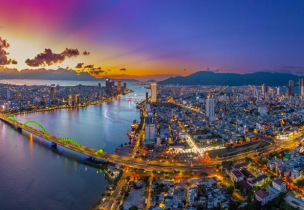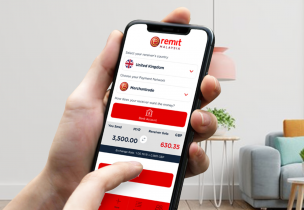When traveling to Vietnam’s coastal city of Da Nang, one of the first things most visitors need is local currency. Whether you’re a tourist, digital nomad, or business traveler, having a quick foreign exchange Da Nang option is essential.
See moreTraveling to Vietnam can be an exciting adventure, filled with breathtaking landscapes, vibrant culture, and delicious cuisine. However, one crucial aspect of planning your trip that many travelers overlook is currency exchange. Knowing the best time to exchange currency in Vietnam can save you significant amounts of money and make your trip smoother. In this guide, we will explore the key factors influencing currency rates, the best locations to exchange money, and expert tips to maximize your savings.
Why Timing Matters for Currency Exchange
Currency exchange rates fluctuate daily due to economic, political, and market factors. Even small changes in the exchange rate can significantly impact the amount of local currency you receive. Therefore, understanding when to exchange currency in Vietnam is essential, whether you are a tourist, business traveler, or expatriate.

Factors Affecting Exchange Rates in Vietnam
1. Global Economic Trends
Exchange rates are influenced by global economic conditions. For example, the strength of the U.S. dollar, Euro, or other major currencies can affect the Vietnamese Dong (VND) rate. During times of global economic uncertainty, rates may fluctuate more frequently.
2. Local Economic Policies
Vietnam’s central bank policies, inflation rates, and monetary decisions can also impact currency value. Monitoring news from the State Bank of Vietnam can provide insights into potential rate changes.
3. Seasonal Travel Trends
High tourist seasons in Vietnam, such as Tet (Vietnamese Lunar New Year), summer holidays, and festivals, can influence demand for foreign currency. Increased demand may slightly affect exchange rates, making some periods more favorable than others.
Best Time to Exchange Currency in Vietnam
While predicting exact rates is challenging, research and historical data provide some guidance on the best time to exchange currency in Vietnam.
Off-Peak Tourist Seasons
Exchanging currency during off-peak travel periods—typically from May to September (excluding Tet)—can offer better rates. Lower tourist demand means banks and exchange services may provide competitive rates to attract customers.
Monitoring the USD/VND Rate
The U.S. dollar is the most commonly exchanged currency in Vietnam. Keeping track of the USD/VND rate using online currency trackers or financial news websites can help you exchange money when the rate is favorable. Historically, minor fluctuations of 0.5% to 1% can make a noticeable difference for large transactions.
Avoiding Peak Festival Times
During Tet and national holidays, currency exchange offices may charge higher fees, and rates may be slightly less favorable due to increased demand. Planning your currency exchange outside these periods is generally a wise strategy.
Where to Exchange Currency in Vietnam
Finding a reliable and cost-effective exchange location is just as important as timing. Here are your main options:
Banks
Vietnamese banks like Vietcombank, BIDV, and Techcombank offer secure currency exchange services. While rates are usually stable, banks may have stricter hours and require identification documents.
Pros:
-
Safe and secure
-
Official rates published by the State Bank
-
Large denominations available
Cons:
-
May have limited operating hours
-
Service fees may apply
Currency Exchange Counters
Many hotels, airports, and tourist areas offer currency exchange counters. While convenient, these may have slightly less favorable rates than banks. Always compare the rates before exchanging.
Pros:
-
Convenient, often available 24/7 at airports
-
Quick transactions
Cons:
-
Rates may be lower than banks
-
Service fees can apply
ATMs
Using ATMs to withdraw Vietnamese Dong with a foreign debit or credit card is increasingly popular. Banks typically provide competitive rates, but foreign transaction fees may apply.
Pros:
-
Convenient, widely available
-
Often provides good exchange rates
Cons:
-
Fees from your home bank
-
Daily withdrawal limits

Tips to Get the Best Exchange Rate
-
Compare Rates Online
Use websites and apps that track daily exchange rates in Vietnam. This allows you to identify the best time to exchange currency. -
Avoid Exchanging Large Amounts at Airports
Airport counters offer convenience but generally provide the least favorable rates. Exchange only what you need for immediate expenses. -
Exchange in Vietnamese Dong (VND)
Always take local currency when making purchases. Some shops and taxis may quote in USD but prefer VND for transactions. -
Monitor Market Trends
If your trip is flexible, track USD/VND trends and exchange money when rates are slightly higher to maximize value.
How Much Currency Should You Bring?
Deciding how much currency to bring depends on your travel style. Vietnam is relatively affordable, but major cities like Hanoi and Ho Chi Minh City may be more expensive than rural areas.
-
Daily Budget: Around $30–$50 per person for moderate travel
-
Cash Needs: Small bills are useful for markets and taxis
-
Card Payments: Widely accepted in urban areas, less so in rural regions

Exchanging currency at the right time ensures that your cash lasts longer and reduces the risk of unnecessary fees.
Avoiding Common Mistakes
-
Using Unofficial Money Changers
While some street vendors offer good rates, they may also give counterfeit bills. Always use authorized banks or licensed exchange counters. -
Ignoring Fees
ATM withdrawals and bank exchanges can include hidden fees. Check both your home bank and local bank policies -
Exchanging Large Amounts Too Early
Currency rates fluctuate daily. Exchanging too much money in advance may result in a less favorable rate.
Currency Exchange and Travel Planning
Understanding the best time to exchange currency in Vietnam not only saves money but also helps with budgeting and travel planning. By tracking rates, knowing where to exchange, and avoiding peak times, you can maximize your spending power.
Additionally, considering alternatives such as pre-paid travel cards or online currency conversion apps can provide convenience and better rates for international travelers.
Final Thoughts
Currency exchange may seem like a minor detail, but it has a direct impact on your travel experience. By following these tips and planning ahead, you can make sure you get the most value for your money. Remember, the best time to exchange currency in Vietnam often depends on seasonal trends, market rates, and personal travel plans. Always stay informed, compare rates, and use secure and reliable exchange services to ensure a smooth and cost-effective trip.
Traveling to Vietnam can be one of the most memorable experiences of your life. Properly managing your money ensures you spend more time enjoying the sights, tastes, and sounds of this beautiful country rather than worrying about currency exchange.



